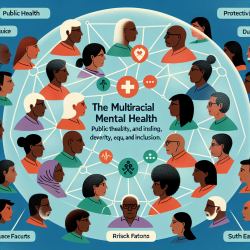Unveiling South Carolina's Pioneering Approach to Special Education Supervision
South Carolina is setting a new standard in special education through its comprehensive General Supervision System. This system is designed to ensure compliance with federal and state requirements while continually improving access, equity, and opportunities for students with disabilities. At the heart of this system are eight key components, each playing a vital role in creating a robust framework for education:
- State Performance Plan
- Policies, Procedures, and Effective Implementation
- Data on Processes and Results
- Integrated Monitoring Activities
- Targeted Technical Assistance and Professional Development
- Effective Dispute Resolution
- Improvement Correction, Incentives, and Sanctions
- Fiscal Management
These components work in synergy to create a seamless system that not only meets but exceeds the requirements set forth by the Individuals with Disabilities Education Act (IDEA).
The Power of the State Performance Plan
The State Performance Plan (SPP) is a cornerstone of South Carolina's approach. It outlines measurable targets in key areas such as disproportionality, evaluation timelines, and academic performance. This plan serves as a blueprint for systemic change, aiming to improve results for students with disabilities. The involvement of stakeholders, including the South Carolina Advisory Council for Educating Students with Disabilities (ACESD), ensures that the plan is both comprehensive and community-driven.
Policies and Procedures: The Backbone of Compliance
South Carolina's Office of Special Education Services (OSES) has developed detailed policies and procedures to ensure compliance with IDEA. These are not just about ticking boxes; they are grounded in evidence-based practices aimed at improving outcomes for students. The state's online Individual Education Program (IEP) system, South Carolina Enrich IEP, supports these processes with user-friendly tools and resources.
Data-Driven Decision Making
Data is at the core of South Carolina's strategy. The OSES collects and analyzes data to drive decisions and report on progress. This data-driven approach ensures that all Local Education Agencies (LEAs) are held accountable and are continually improving. The Special Education LEA Profile, for instance, provides a detailed overview of how each LEA is performing against state targets.
Integrated Monitoring and Technical Assistance
Monitoring is not just about compliance; it's about improvement. South Carolina's integrated monitoring activities are designed to identify noncompliance and provide targeted technical assistance to address issues. The System of Tiered Assistance (SoTA) offers a structured approach to support LEAs based on their specific needs, ensuring that all students have access to high-quality education.
Resolving Disputes Effectively
Dispute resolution is a critical component of South Carolina's system. The state offers various options, including an Ombudsman service, facilitated IEP meetings, and mediation. These processes ensure that disputes are resolved in a manner that is fair, efficient, and focused on the best interests of the students.
Fiscal Management: Ensuring Accountability
Fiscal management is crucial to the success of any educational initiative. South Carolina's OSES provides resources and technical assistance to ensure that LEAs manage their funds effectively. The state's fiscal monitoring approach is both comprehensive and outcome-oriented, ensuring that all financial resources are used to support the educational needs of students with disabilities.
South Carolina's approach to special education is a model of excellence, setting a benchmark for other states to follow. By integrating compliance with continuous improvement, the state is ensuring that students with disabilities have the opportunity to succeed and thrive.
For more information, please follow this link.










